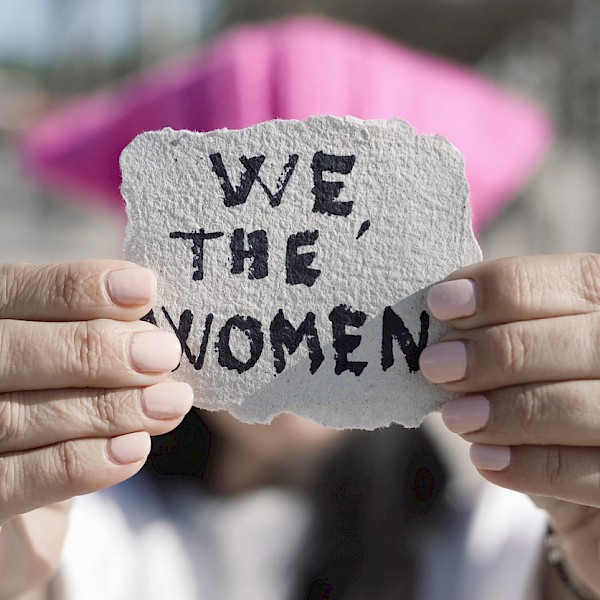Stepping Up Standards for Women in Tech



Inclusion and diversity are increasingly front of mind for the tech sector. Yet, standards for women in tech need to be taken up a notch. Women still have a long way to go to achieve equality – and are significantly underrepresented across the sector and particularly so at leadership levels.
Positive actions are being taken, however. In May, 45 tech companies, including IBM, Alibaba and Uber, pledged to ensure that at least 30% of the seats on their management boards were occupied by women by 2022. Meanwhile, London VC firms are now testing anonymous pitch decks, aiming to boost funding for female-led startups. What's more, over half of women in tech (52%) agree that gender diversity is now a core business priority for their companies.


At the broadest level, companies looking to drive diversity need to stamp out prejudice and discrimination – a fact that might seem obvious until you consider the conduct that has been reported at companies like Uber and Tinder in the recent past. Gender bias can be more subtle, however – going down to the phrasing and structuring of job ads, for example – so it's important for businesses to be mindful across the full span of the employee experience.
It could be argued that women need to be put in the driving seat for leading gender diversity initiatives. This could beneficial to look at perspectives from a woman’s point of view, for example, when reviewing bonus schemes or the hiring process.


For real change to happen, the mandate has to come from the top – but transformation, addressing tech's ground-level diversity problem, will arguably be driven by bringing more women into the industry. Empiric's Next Tech Girl's initiative focuses on precisely this problem. The programme follows a three-pronged approach, helping teenage girls get work experience placements in the tech sector, connecting them with mentors, and championing female role models in the industry.
In combination, these steps show young women that there are people much like them doing well in tech; they can give them access to tech workplaces and the community; and they can set them up to succeed in their careers. At the same time, the programme gives employers access to a wider talent pool, including highly engaged candidates who might never have otherwise applied.
“Tech can be very obscure and covers a lot of jobs and industries so meeting and working with people in tech companies can be really useful to better understand what the possibilities are and to identify what you'd like to do,” comments Pauline Issard, Co-Founder and CEO of Trackener. “It's important to find out early on what interests you and what doesn't so that you can later on better choose what you want to study and then take internships or jobs based on what you really like and want to do in the future.”


Pauline also underlines the fact that businesses pursuing diversity have to celebrate women and push female role models forwards.
“[Businesses] should make sure their communications mention as many women working in tech as men; that they offer [the chance] to women to speak at events – as some might love to do so but are not brave enough to ask for it – and that, overall, they put women in the spotlight whenever there is an opportunity,” Pauline comments. “As a result, this will attract more women to work in tech as they will see more examples of women who enjoy their jobs and are successful working in tech. And companies need to make sure they send as many women as men to tech job fairs and talks in schools so that girls and women don't get discouraged from applying by seeing only men working in tech.”


That said, Pauline believes equality can only be achieved by putting men and women on an equal footing. “We need to stop separating men from women and offer as many opportunities to female employees as to men,” she says. “I don't think that positive discrimination is a good thing (for example including quotas, special training and grants for women), so this needs to stop in my opinion if we want to create real equality between men and women in the tech industry.”
In the meantime, it would seem that a gradual transformation is taking place. “There is still a long way to go until we get to parity in tech roles,” comments Pauline. “[However], there are more and more women role models, and more and more initiatives to attract girls to tech jobs, which is good.”
And looking ahead, these measures should have a cumulative impact over time – as businesses hire more women, they will foster more diverse corporate cultures and develop more welcoming workplaces.

Empiric is a multi-award winning business and one of the fastest growing technology and transformation recruitment agency's specialising in data, digital, cloud and security. We supply technology and change recruitment services to businesses looking for both contract and permanent professionals.

Read more (pdf download)
Empiric are committed to changing the gender and diversity imbalance within the technology sector. In addition to Next Tech Girls we proactively target skilled professionals from minority groups which in turn can help you meet your own diversity commitments. Our active investment within the tech community allows us to engage with specific talent pools and deliver a short list of relevant and diverse candidates.
For more information contact
02036757777